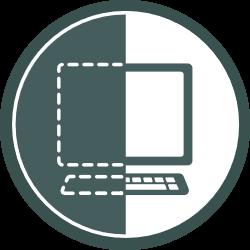





Technology-Facilitated Coercive Control (TFCC) is when someone uses technology to control, scare, manipulate, or have power over someone. TFCC is a common tactic used by abusers in their pattern of intimate partner and sexual violence.
TFCC is someone using a phone or other devices to:
• Harm, hurt, manipulate you or make you feel unsafe even when they are not in the same place as you.
• Abuse you as part of bigger pattern of harm for example, stalking, intimate partner violence, sexual violence, physical abuse, visa abuse, and threats.
• Constantly contact you and remind you they have control over you online and offline - making you feel intimidated, fearful, or confused.
• Isolate you from friends and whānau by telling you who you can or can’t communicate with, spreading false allegations about you, and restricting your access to devices.
• Undermine your right to privacy and freedom to choose how you want to use your devices.
If you or someone you know is experiencing TFCC, know that this behaviour is not ok and it’s not your fault.
Signs you may be experiencing TFCC can include, but aren’t limited to:
When someone eg. an ex intimate partner, family member, online friend, hook up:
• threatens, punishes you, constantly puts you down, or controls you through your phone.
• prevents you from using your phone to call friends, family, or reach out for help.
• forces you to share your password and account logins with them.
• makes you reply to constant messages and calls even when you are at school, work, with friends, caring for your children, or sleeping.
• destroys, hides, or takes your phone or other digital devices to control or punish you.
• shows up where you are unexpectedly.
• stalks you or tracks your location using your phone, apps, GPS and other tracking devices.
• spies on you using cameras or recording devices.
• gathers information about you through devices or social mediaincluding through mutual friends to stalk, monitor, or use against you.
• pressures you into sharing sexual images, or takes sexual recordings of you - then uses these for their own personal pleasure, to earn money from (sometimes called sextortion or sexploitation) or to control you.
• threatens to ‘out’ your sexuality or gender when you do not want that shared, including through threatening to share sexual images.
• shares or threatens to share your intimate images, recordings, or deepfakes (fake images and AI of you) with others without your consent.
• uses your phone, logins, or online accounts to pretend to be you or someone else.
• contacts your GP, workplace, or government services without your consent.
• tells you that any of the above behaviour is ‘normal’, ‘for your own good’, ‘for your safety’, or because ‘they care about you’.
TFCC can have devastating far-reaching impacts - undermining your mana and your right to feel safe in your whānau, hapori, and digital spaces. People experiencing TFCC report feeling fearful, alone, anxious, and disempowered. Some can feel confused, especially when it’s happening from someone they know or care about. They also may be isolated from family and friends which can make it harder to get access to support.
If you’re dealing with TFCC, you are probably already doing a lot to keep yourself safe. Some of the extra safety tips below might be helpful, but others could feel too risky or not useful right now. If it feels safe to do so, you could:

Click on the Shielded Site icon at the bottom of many government and large NZ shopping websites to access Women’s Refuge anonymously.
Use a private/incognito when browsing the internet (this is a mode you can use which does not save your history).
If you can, save examples of what’s been going on on a separate device or email that only you or someone you trust has access to.

Contact Netsafe if you want support around harmful communications as we may be able to get content removed or prevent intimate recordings being shared online without your consent.
Check devices for apps that might have been installed without your consent - Netsafe can give you advice on next steps from here.
If safe to do so, turn off location sharing on devices and social media posts to hide your current location.
If safe to do so, log out of online accounts that others might have access to or remove personal details from accounts others can access (e.g. address details from health, shopping, school, travel websites and apps).
Visit a public place where you can use a public device such as a library.
Dealing with TFCC is hard, and you don’t have to go through this alone.
A range of support is available. Feel free to reach out anytime, even if it’s just to help understand what’s been going on:
• For support with online safety – including any of the safety steps in this handout – reach out to Netsafe anytime for advice.
Call 0508 638 723, text 4282, or visit netsafe.org.nz
• If you are experiencing TFCC and feel worried about safety - Women’s Refuge and Shine can help.
Call Women’s Refuge on 0800 733 843 24/7 or visit womensrefuge.org.nz
Call Shine on 0508 744 633 24/7 or visit 2shine.org.nz
• If you would like support from a Takatāpui and Rainbow support service – reach out to Hohou Te Rongo Kahukura - Outing Violence
Visit - https://kahukura.co.nz/
• For more support options, visit the link below www.intheknow.co.nz/need-help/
Know someone who might be using tech in a way that could be controlling?
Kia tūpato, kia māia. Be cautious, be courageous.

If you’re reading this online and need to leave quickly, click on the Quick Exit button on the resource webpage
If you’re in immediate danger, call emergency services on 111.
There are organisations that help people understand and change their behaviour in a non-judgemental way, for example:
Love Creep
lovecreep.nz/help
innerBoy
sheisnotyourrehab.com/innerboy-2
This resource was created in collaboration with Netsafe, Women’s Refuge, Shine and the Light Project.


